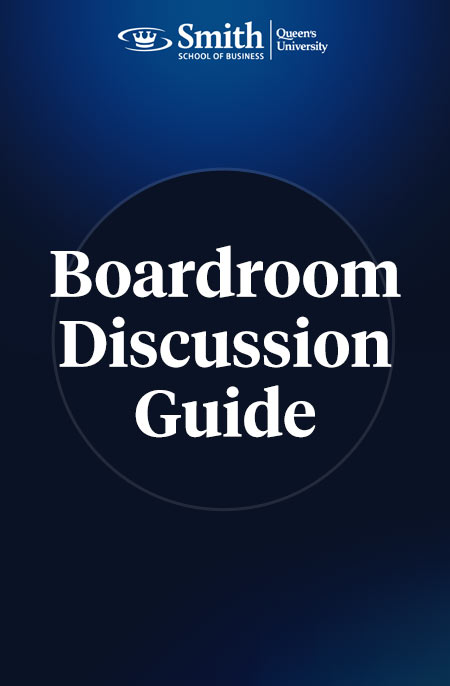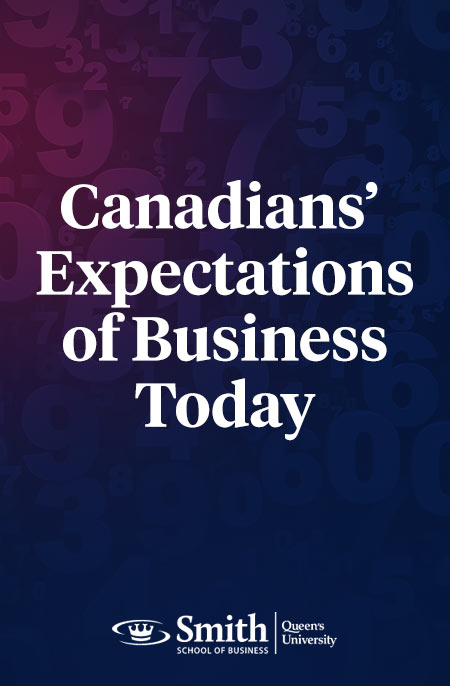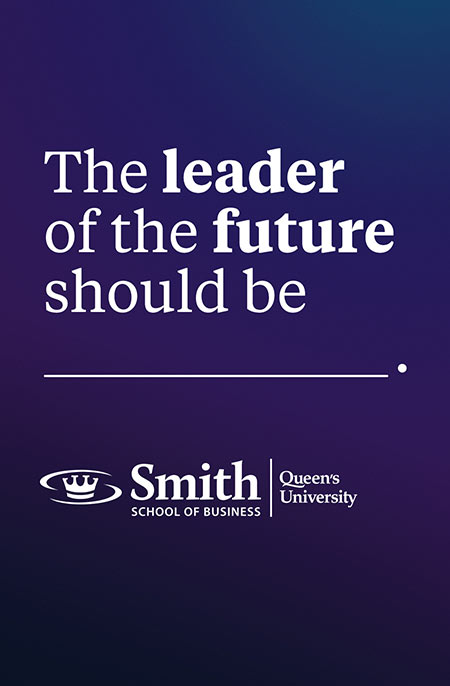The leader of the future should be...

“Providing a fertile ground for others to flourish as they pursue their passions.”

“Resilient.”

“Adaptable.”

“Always evolving and open to change.”

“A woman.”

“Focused on sustainable growth.”

“Committed to building a better world, including for the people who work for them.”

“Socially conscious.”

“Kind and courageous.”

“Aware of the momentous times we're living in, and that decisions we're making now will affect the future for generations to come.”

“Authentic and a servant leader.”

“Curious, emotionally intelligent, empathetic, and agile.”

“Authentic, vulnerable, human and inspirational.”

“Courageous, open-minded and fact-based.”

“AVIRA: Aware, Visionary, Imaginative, Responsible, Action-oriented.”
Start your own conversation

Boardroom Discussion Guide
Our Boardroom Discussion Guide will help you bring this important conversation to your senior leadership team.

Survey Highlights
Get access to key insights from our Business Survey Highlights on Canadians’ expectations on business today.

Shareable Graphics
Join the conversation! Download and share these graphics and start a discussion with your online community.
Download the GraphicsThe socially conscious leader
As the dean of a business school, Wanda Costen spends a lot of time speaking with business leaders. She wants to know what’s on their minds, their challenges and how Smith School of Business can better support them. In this video, Dean Costen invites leaders to ask themselves: Why does the organization that I'm leading exist? What is its purpose? Cautioning that if leaders aren't socially conscious today then they're not in tune with what's happening in society.
Purpose & Profit
Why do corporations exist? To make a buck or better society? The debate still rages. Two seminal pieces published nearly 50 years apart make compelling arguments for who businesses should serve. Read them both, and decide for yourself.
The Friedman Doctrine
Six years before he won the Nobel Prize in economics, Milton Friedman wrote an essay that influenced CEOs and politicians for decades. “A Friedman doctrine–the social responsibility of business is to increase its profits” was published in the New York Times on Sept. 13, 1970.
In the essay, Friedman argues that the sole purpose of a business is to make money. Anything else is detrimental to a firm’s shareholders, employees and customers. “There is one and only one social responsibility of business—to use its resources and engage in activities designed to increase its profits so long as it stays within the rules of the game, which is to say, engages in open and free competition without deception fraud,” he wrote.
Do Friedman’s words still matter? Whatever your views on the purpose of a corporation, his essay is worth another look.
A new definition of corporate purpose
The Business Roundtable, an association of chief executives at America’s largest companies, has long attempted to define why companies exist, periodically issuing principles of corporate governance. For many years, those principles emphasized shareholder primacy. In other words, corporations mainly served shareholders.
But in 2019, the Business Roundtable came out with a new “Statement on the Purpose of a Corporation.” It lists five commitments corporations must make to their stakeholders and says companies must benefit not just shareholders but also customers, communities, suppliers and employees.
“Major employers are investing in their workers and communities because they know it is the only way to be successful over the long term,” Jamie Dimon, chairman and CEO of JPMorgan Chase and chairman of the Business Roundtable, said after the statement of purpose was issued. To date, more than 200 CEOs have signed it.
Explore Another Chapter
This is business now
The world is facing some big problems. How do these issues affect businesses? And what’s their role in creating solutions?
Learn MoreIt's a hard time to be in business
Not only must leaders understand the scope of problems not traditionally in the purview of commerce, they must be prepared for their organizations to play active roles in solving them.
UnderstandHow to contribute with impact
It’s now extremely important—strategically and practically—for business organizations to get involved in causes. But it’s rarely as straightforward as it might seem.
InvestigateWhy silence isn't an option
When something big happens, people want to know what business leaders have to say about it. Sometimes that’s an easy call. But often it’s not.
ExploreWhat tomorrow's leaders need
The redefinition of commerce and the roles of the people who lead it carries tremendous promise of a brighter, greener, fairer future.
DiscoverWho is the leader of the future?
Expectations facing leaders change with the times. Agile, authentic, dependable—what should the leader of the future be?
Have Your Say
 Fresh ideas from Smith School of Business
Fresh ideas from Smith School of Business Subscribe to the Newsletter
The Smith Business Insight newsletter offers you cutting-edge research, opinions, and advice from world-renowned experts — delivered straight to your inbox.
